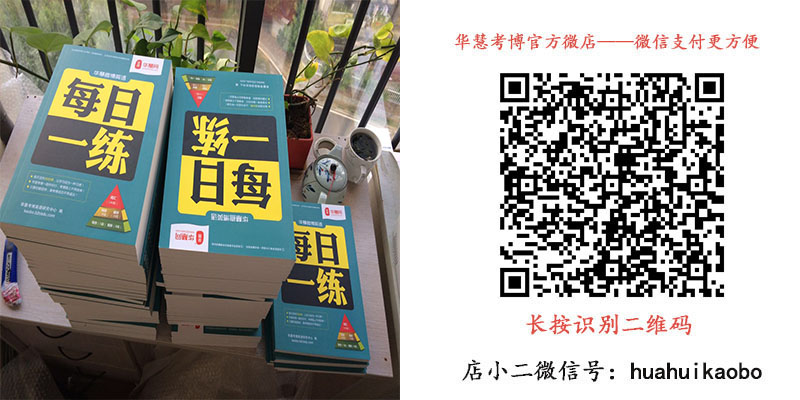【华慧考博】2020年考博英语翻译每日一练(10月10日)
【翻译-段落翻译练习】人们对智力所指的有那些不同表现的看法比较一致,而对这些表现如何进行解释和分类,意见就不那么一致了。但人们一般认为智力高的人在处理问题时能抓住要点,善于区分,能进行逻辑推理,和利用语言和数学符号。智力测试只能很粗略地衡量孩子的学习能力,尤其是学习学校要求的东西的能力。智力测试并不能衡量一个人的个性、社会适应力、耐力性、劳动技能或艺术才能。人们不认为能做到这些,当初也不是为这些目的而设计的。批评智力测试不能做到这一些,就如同批评温度计不能测风速一样。既然对智力的评估是相对而言的,那么我们必须确保,在对我们的对像进行比较时,我们所使用的尺度能提供“有效的”或“公正的”比较。

【翻译参考译文】
(1) There is more agreement on the kinds of behavior referred to by the term “intelligence” than there is on how to interpret or classify them. (2) But it is generally agreed that a person of high intelligence is one who can grasp ideas readily, make distinctions, reason logically and make use of verbal and mathematical symbols in solving problems. (3) An intelligence test is a rough measure of a child’s capacity for learning, particularly for learning the kinds of things required in school. (4) It does not measure character, social adjustment, physical endurance, working skills or artistic abilities. (5) It is not supposed to—it was not designed for such purposes. (6) To criticize it for such failures is roughly comparable to criticizing a thermometer for not measuring wind velocity. (7) Now since the assessment of intelligence is a comparative matter we must be sure that the scale with which we are comparing our subjects provides a “valid” or “fair” comparison.









